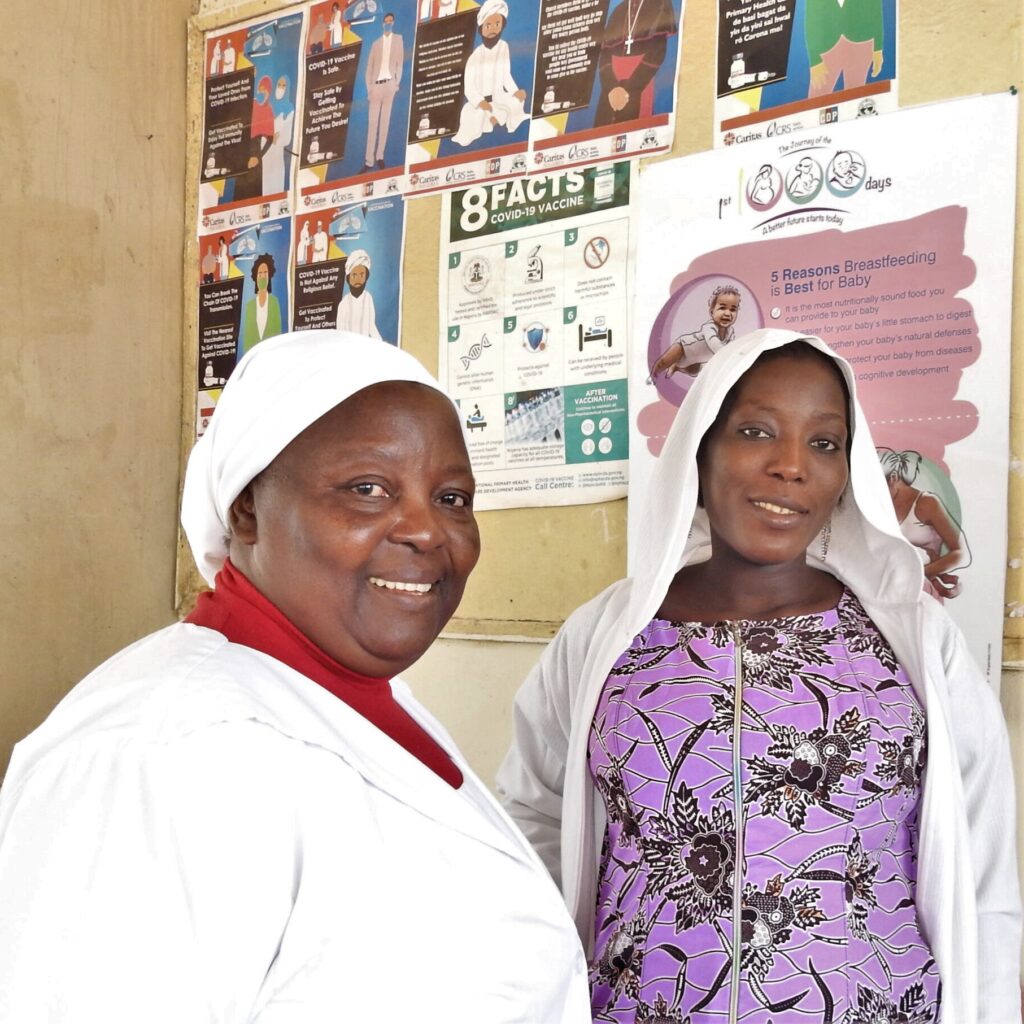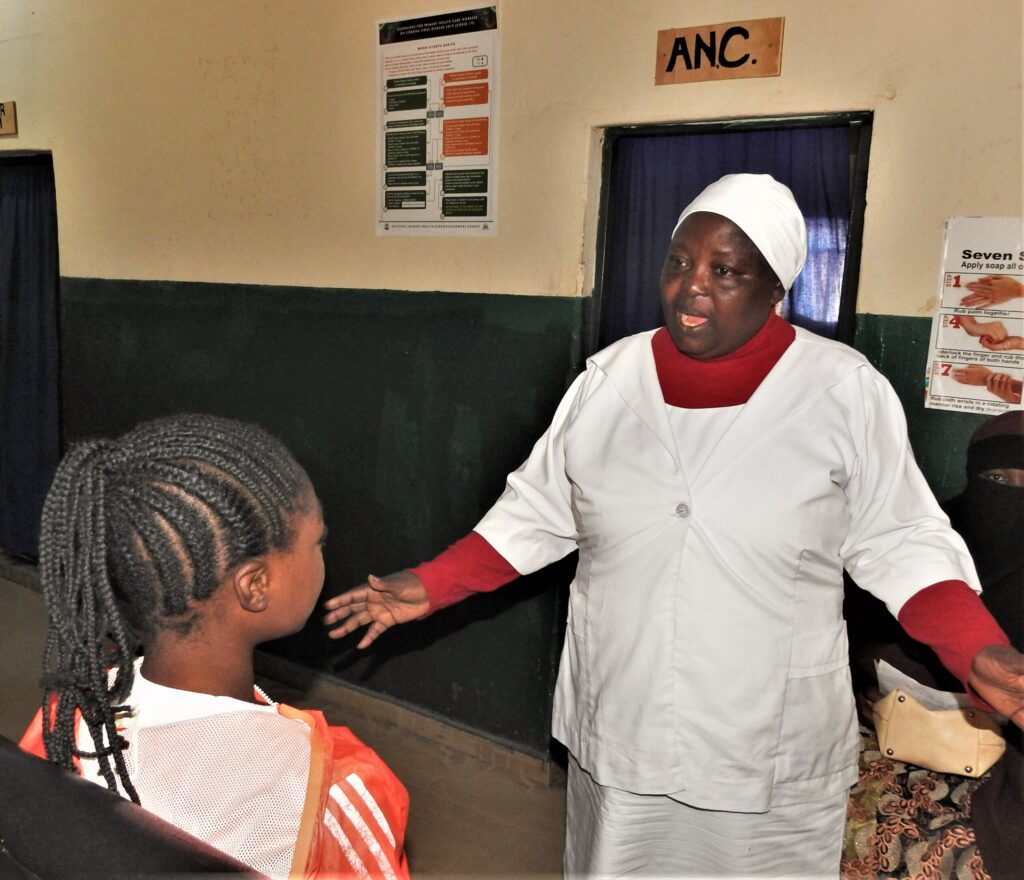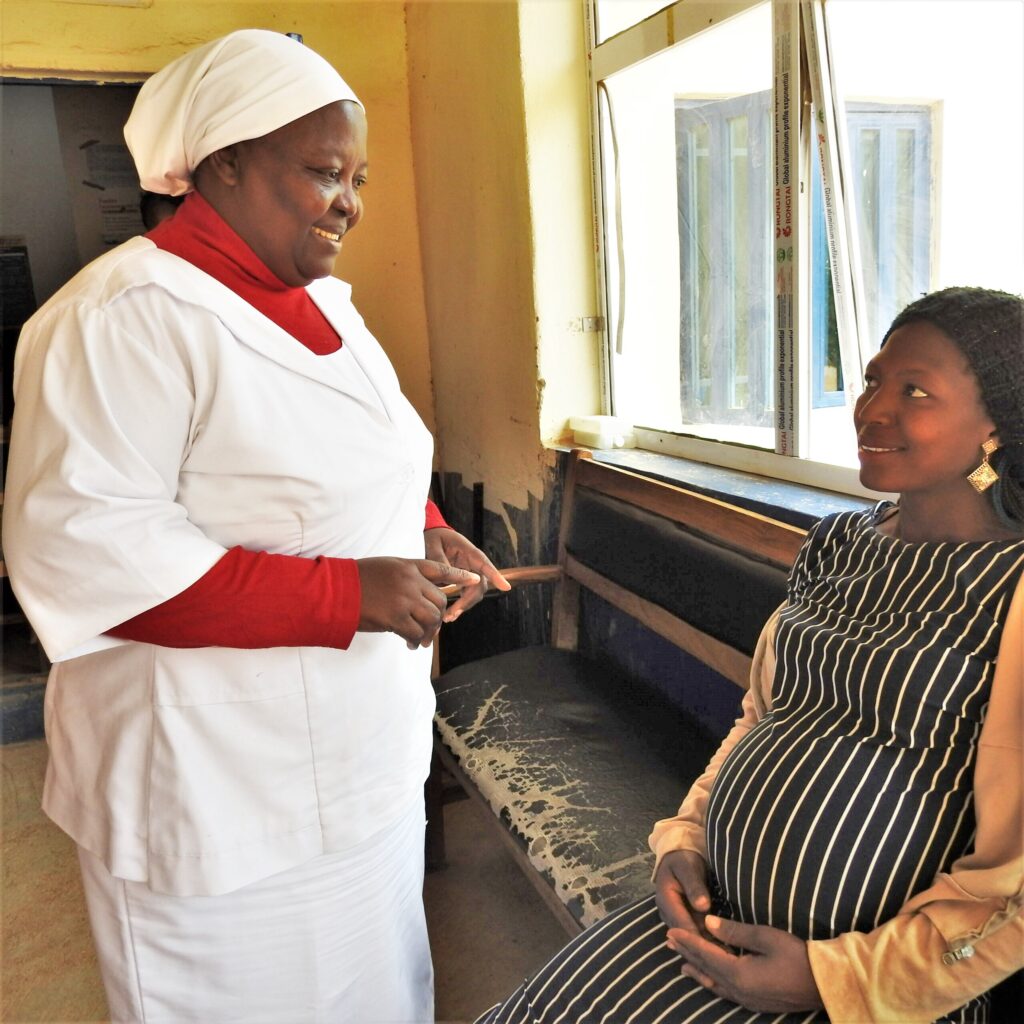Nurturing Health and Hope: A Nurse’s Dedication to Malaria Prevention and Maternal Care in Nigeria
Nurturing Health and Hope: A Nurse’s Dedication to Malaria Prevention and Maternal Care in Nigeria
This article was first published on PMI.gov.

Monica Akyok has spent most of her 34-year nursing career offering care to people in her community at the Primary Health Center (PHC) Bukuru Central in Nigeria’s Plateau State. Wednesday is the Center’s Antenatal Day, a day dedicated to focused care for the community’s pregnant women. On this day, Monica offers family planning services, advice on immunizations to a mom with a toddler, or tips on exclusive breastfeeding to a mother with a newborn. Monica also gives health talks where she educates pregnant women on how to protect themselves from malaria. She explains important prevention measures such as sleeping under an insecticide-treated bed net, taking preventive medicines, and removing stagnant water near homes (which can be a breeding place for mosquitoes).
This focus on prevention among pregnant women can help protect them from serious complications from malaria, like anemia or stillbirth, and improve the health outcomes of their babies. The Primary Health Center provides free malaria testing and treatment for children and pregnant women with the support of the U.S. President’s Malaria Initiative (PMI).

Jessica Naphtali, a mother of three and now pregnant with her fourth child, visits Monica on Antenatal Day. Naphtali pays close attention to Monica’s advice. With the support of Monica and other health facility workers, Naphtali gave birth to her other children without malaria complications. “I am grateful for the free malaria treatment,” she says. “It means a lot to have that.”
Preventing malaria in pregnancy requires skills and coordinated care. In 2020, PMI trained Monica and other health workers in Plateau State on how to administer malaria preventive medication along with antenatal care.
For the past three years, Monica has supported pregnant women in the use of treatments to prevent malaria, providing medicine during the second and third trimesters of pregnancy to protect women from the disease. By integrating malaria prevention and treatment services into the routine antenatal care she provides, Monica says she sees a lower incidence of malaria ailments in the facility.
“Antenatal care provides us with an important opportunity to address malaria among pregnant women,” says Monica. “With the introduction of preventive medicine, women hardly come up with malaria. Since last year, I’ve not seen us record any pregnant women that are taking the preventive medicine coming down with malaria. Those that come with malaria are usually those that are yet to start antenatal care.”
Since 2021, the Bukuru Central PHC has supported more than 1,580 women in taking their first dose of preventive malaria medicine. Amongst these, 82 percent of women have completed a second dose, while 71 percent have completed the first, second, and third doses of treatment.
In addition to prevention, the Center also provides testing and treatment for uncomplicated malaria. Health workers like Monica use rapid diagnostics test kits to test for malaria, making it easy to get results on the spot and, when positive, quickly treat patients with effective antimalarial medicine.
Prevention, testing, and early treatment help prevent malaria from developing into a more severe health issue that needs more expert care. This protects not only the health of patients, but also their finances as most would have to pay extra for advanced health care.

“If everything is controlled at the primary care level, the secondary and tertiary hospitals will have less work to do,” says Monica. “The major role we play here is trying to prevent what will become worse for our patients [if they need] to go to a higher-level hospital for treatment. That is why we do immunization and provide malaria preventive treatments for pregnant women.”
If needed, Monica knows when to refer her patients to another facility. Sadiya Nasir gave birth a few months ago. She comes to the facility anytime she notices anything amiss with her baby, who now has a fever. With her skills and PMI training, Monica administers a rapid diagnostic test for the baby and determines it is not malaria. She refers Sadiya to a secondary health facility to seek advanced care for the baby. But before the visit ends, she uses the opportunity to talk to the mother about exclusive breastfeeding and how that could help her baby develop a stronger immune system.
Reflecting on the decades she has spent supporting women in her community, Monica says:
“I feel fulfilled that the children I have delivered are now also mothers. I also feel fulfilled helping the younger generation of health workers just starting in the service and the students who come for training.”
Since 2020, PMI has trained more than 220 health workers in Plateau State on preventive malaria medicine for pregnant women and various aspects of malaria service delivery.